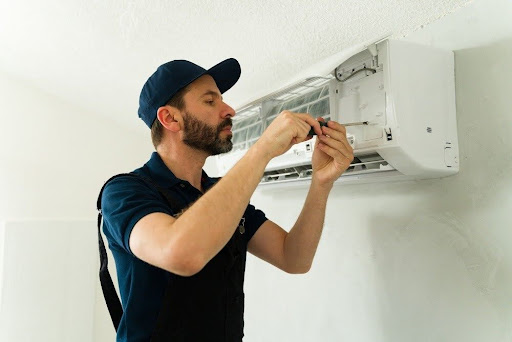Installing new patio pavers or walkways is a major investment in your home’s curb appeal and functionality. To ensure your hardscaping project is done right from the start, it is crucial to partner with the most qualified paver installation company. This article provides a comprehensive guide for homeowners to select the best contractor based on licensure, experience, reputation and contractual agreements.
Quality Matters in Paver Contractors
When it comes to installing new patio pavers or walkways around your home, quality should always take precedence over cost. Cheaping out on materials or labor could mean needing to redo the job in just a few short years rather than enjoying your hardscape for decades. That’s why it’s crucial to vet paver installation companies very carefully based on their reputation and track record for excellence.
The team you hire will have a huge impact on how well your paver project turns out. Opt for contractors with proven expertise rather than dashing for the lowest bid just to save a quick buck. Quality workmanship is worth paying a little extra for to avoid regrets later on.
Budgeting for Your Paver Project
Before contacting paver installers, take time to realistically budget for your project. Factor in costs of materials, labor rates typical for your region, permits if needed, and other foreseeable expenses. Be prepared to pay prevailing wages for skilled masons and laborers rather than opting for amateur weekend warriors. You’ll likely get what you pay for. Research average costs online and compare multiple quotes to ensure a proposed price seems reasonable. Leave room for potential additions or changes that often come up with construction work too. Proper budgeting prevents payment panic or compromise on quality later on.
Vetting and Researching Contractors
Vet potential paver contractors thoroughly before committing. Ask for references from recent jobs and photos of completed projects if possible. Search reviews online to gauge their reputation. Quality companies voluntarily display positive ratings and don’t seem to have many complaints. Also check if they are licensed, bonded, and carry general liability insurance in case mistakes happen. License status can be verified online through regulatory boards. Unlicensed operators may cut corners and not stand behind their work. Always measure expertise over just price when making your final selection.
Experience and Expertise of Contractors
Experience installing prominent projects like those for homeowners’ associations, high-end developments, or commercial spaces shows a company’s skill level and reliability. Query how long they’ve been in the paving business as well. Reputable companies don’t just pop up overnight. Choosing experienced professionals gives confidence that proper techniques and best practices will be followed. Watch out for novice contractors prone to errors or unable to foresee and solve problems effectively. Check contractor’s expertise and experience in similar jobs versus generic building experience. Specialized skills mean your project will receive targeted attention from aptly qualified personnel.
Licensing, Insurance, and Contractor Selection
Ensure the paver installation company you hire possesses all required state licenses and carry insurance policies to protect their company and customers. Licensed status alone under state regulatory boards lends credibility while insurance provides funds to fix any rookie mistakes. Ask to physically see valid documents or permit verification links online. Contractors operating legally with insurance show accountability and reduce your liability if issues arise after project completion. As a customer, following licensing and insurance verification steps gives peace of mind that you’ve hired trustworthy professionals responsible enough to remedy defects professionally.
Portfolio, References, and Contract Negotiation
Request to view a company’s portfolio demonstrating past projects and styles similar to what you envision. Seeing real photos of their capabilities helps validate advertised expertise. Ask contractors for references too to check previous clients’ reviews and experiences. Speaking directly with past customers reveals unfiltered details on quality, honor of estimated timelines, cleanliness, communication, and handling of problems. Negotiate contracts carefully to fully agree on project specifics, materials, costs, payment schedules, start/end dates, warranties, change order policies, and other crucial terms before signing. Clear expectations prevent future disputes which maintains quality work and customer satisfaction.
Crucial Contract Terms for Quality Assurance
All aspects that impact quality must be clearly defined in your signed contract including project scope, materials to be used, start/completion dates, cost breakdown, payment schedule, change order allowances, warranty details and term, liability clauses, dispute resolution process, permitted work hours, cleanup responsibilities, expected standards and permitted tolerances, inspection schedules, and more. Requesting a complete demonstration of understood terms fosters accountability on both sides. Any ambiguities could undermine installation excellence if things don’t go as planned, so take time for thorough reviews before moving forward. Quality installers welcome open contract discussions to satisfy customers rather than avoid important conversations that lead to fewer problems later on.
Long-Term Quality Maintenance for Paver Projects
Top contractors also provide post-project guidance on appropriate long-term maintenance for your new paver installation. Proper sealing and cleaning routines maximize the lifespan and aesthetics of your investment. Ask which products and techniques they recommend and at what intervals for things like weed prevention, joint re-sanding, sealing, or repairs as needed over the coming years. Reliable businesses want customers to retain them for future renovations or repairs too, so they deliver straightforward aftercare advisements. Refer back to any supplied manuals or documentation as time goes on. Practicing preventive steps extends the look and usability of your hardscape project for many more seasons of enjoyment.
Summary
- Carefully vet potential paver contractors based on licensing, qualifications, experience level, insurance, references and portfolio quality
- Realistically budget to pay prevailing industry wages for skilled labor versus low amateur bids
- Define clear expectations, materials, timelines and quality standards in a reviewed contract
- Inspect work regularly for compliance and address deviations promptly
- Follow recommended preventive maintenance routines to maximize paver lifespan
- Hire trustworthy professionals dedicated to both proper installation and aftercare guidance









